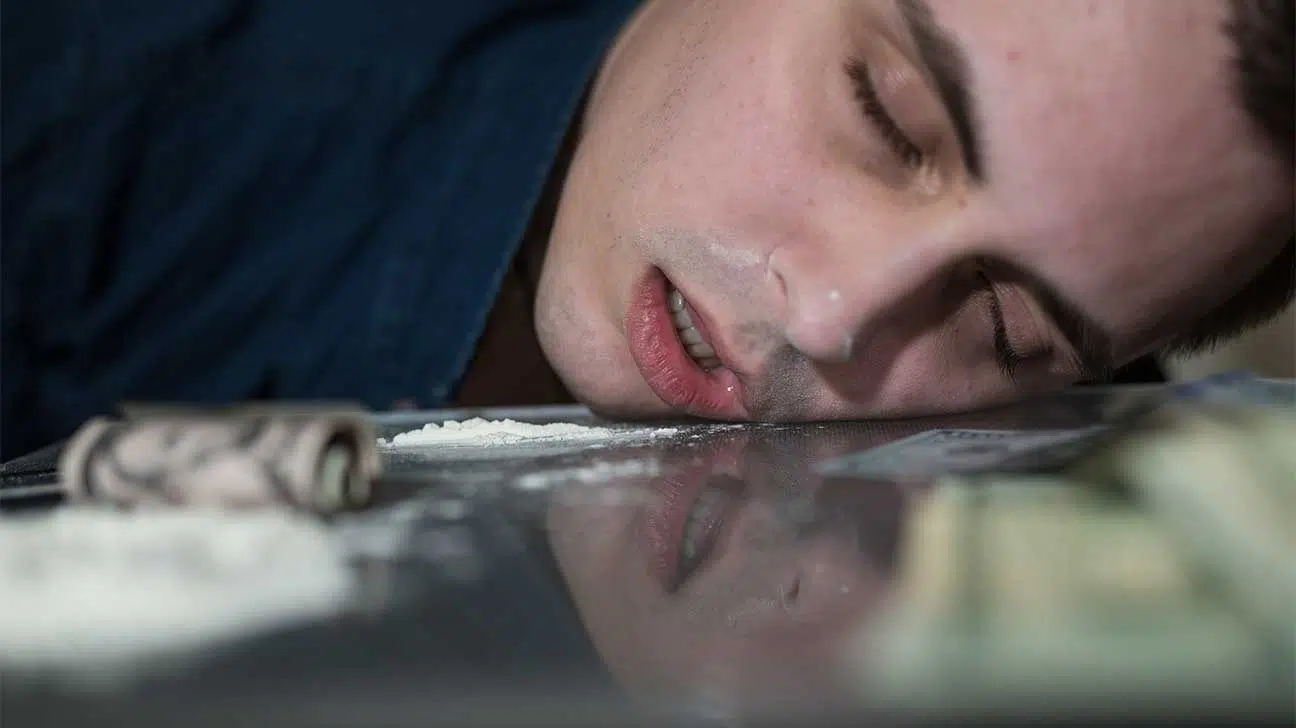Can You Eat Crack Cocaine?
Crack cocaine is usually smoked, but it can be consumed in other ways. Some people may choose to eat crack cocaine, a method that may worsen certain crack cocaine side effects.

Crack cocaine is a form of cocaine that has been mixed with baking soda and cooked until solid.
Once crack becomes a solid mass, it can be broken into small, rock-like pieces.
This illegal stimulant drug, which causes a short-acting euphoria, is usually consumed via smoking.
However, because crack can be used in multiple ways, many people have questions about its use.
For example, several ask whether it is possible to eat crack cocaine.
Eating crack is a rare form of drug use, much like eating powder cocaine. However, it is possible to eat crack.
For some people with a crack cocaine addiction, eating crack may be a preferred method of consumption.
Why Might Somebody Eat Crack Cocaine?
Most people who use crack cocaine smoke it because smoking is convenient, fast, and produces a powerful high.
However, some may choose to eat crack instead for a few reasons.
Slowing The Effects Of Crack
The high from smoking crack may be intense, but it is also short-acting. In fact, this kind of high may only last for a few minutes.
To prolong their high, some people may smoke crack several times in one sitting. However, this method of abuse can heighten side effects.
Eating crack cocaine, however, does not produce a quick high.
While smoking crack allows the drug to enter the bloodstream quickly, eating crack means that the drug must travel through the digestive system first. The resulting high may last longer.
Furthermore, this kind of high may be less overwhelming than a high from smoking crack, so this method may appeal to those who have never used crack cocaine before.
An inexperienced person may eat crack when they use the drug for the first time so they can experience a gentler cocaine high.
Crack Cocaine Paraphernalia
Different forms of cocaine abuse require different types of cocaine paraphernalia.
For example, when snorting powder cocaine, a person will need a smooth surface and flat object to arrange the white powder into a line.
Crack cocaine paraphernalia usually includes glass pipes, lighters, and other objects that facilitate smoking. However, these objects may not always be available.
If a person with a cocaine addiction is experiencing strong cravings, but they don’t have any smoking paraphernalia, they may opt for other methods, including eating crack.
Minimizing Specific Side Effects
Cocaine and crack cocaine side effects can be uncomfortable and may vary depending on the method of abuse.
Here is how side effects may vary based on the different ways to use cocaine:
- Snorting cocaine in its powder form may cause nosebleeds, loss of smell, and other forms of nasal irritation.
- Injecting cocaine increases a person’s risk for infectious diseases such as HIV and hepatitis.
- Smoking cocaine can irritate the lungs, worsening asthma and other breathing problems.
To avoid or minimize these specific side effects, a person may eat crack instead of using a more common method.
Hiding Crack Cocaine Use
Many people with drug addictions will go to great lengths to hide their drug use from loved ones. Crack cocaine use, however, is not always easy to hide.
While the drug itself is small and very portable, crack cocaine paraphernalia may be much easier to find.
Crack cocaine also produces a very strong smell when smoked. The smell of crack cocaine has been compared to burning rubber, burning plastic, and nail salons.
Eating crack cocaine, however, would allow a person to experience the effects of cocaine without alerting others to their cocaine use.
Effects Of Eating Crack Cocaine
What happens if you eat cocaine? Whether it’s crack cocaine or cocaine in its powder form, eating cocaine creates many risks.
Effects Of Crack
In spite of its slowed effects, eating crack may still lead to the same side effects and dangers as other forms of cocaine use.
Some of these side effects include:
- cardiovascular issues from cocaine (including chest pain, elevated heart rate, and heart attack)
- high blood pressure from constricted blood vessels
- elevated body temperature
- mental health problems such as anxiety and depression
- cocaine-induced weight loss and malnutrition
- cocaine psychosis
- withdrawal symptoms
- cocaine overdose
Gastrointestinal Issues
In addition to the effects of crack in general, people who eat crack cocaine may also experience gastrointestinal health problems.
According to research on the long-term effects of cocaine, all forms of cocaine use may cause these issues, as cocaine reduces blood flow to the digestive tract.
However, eating crack may worsen these issues because it brings the drug into direct contact with the stomach and intestines.
Find Addiction Treatment For Crack Cocaine Abuse
No matter the method of use, crack cocaine is a highly addictive drug, and crack addiction is a serious mental health condition. However, this condition is treatable.
The behavioral healthcare specialists at Spring Hill Recovery Center offer outpatient treatment options, inpatient substance abuse treatment, and detoxification programs.
If you’re ready to recover from cocaine abuse and are looking for a rehab center in Massachusetts, contact us today to learn about our treatment center.
- National Institute On Drug Abuse — How Is Cocaine Used? https://nida.nih.gov/publications/research-reports/cocaine/how-cocaine-used
- National Institute On Drug Abuse – What Are The Long-Term Effects Of Cocaine? https://nida.nih.gov/publications/research-reports/cocaine/what-are-long-term-effects-cocaine-use
- United States Department Of Justice — Crack Cocaine Fast Facts https://www.justice.gov/archive/ndic/pubs3/3978/3978p.pdf
- United States Drug Enforcement Administration — Cocaine https://www.dea.gov/factsheets/cocaine


